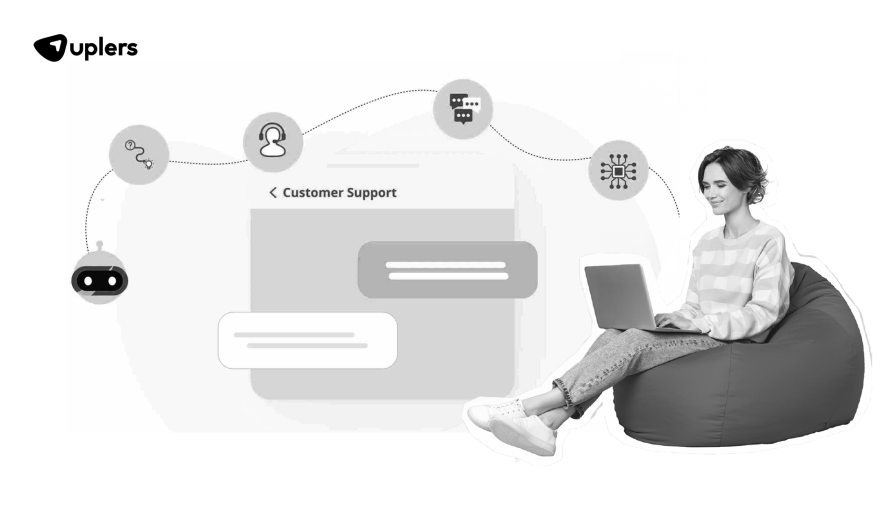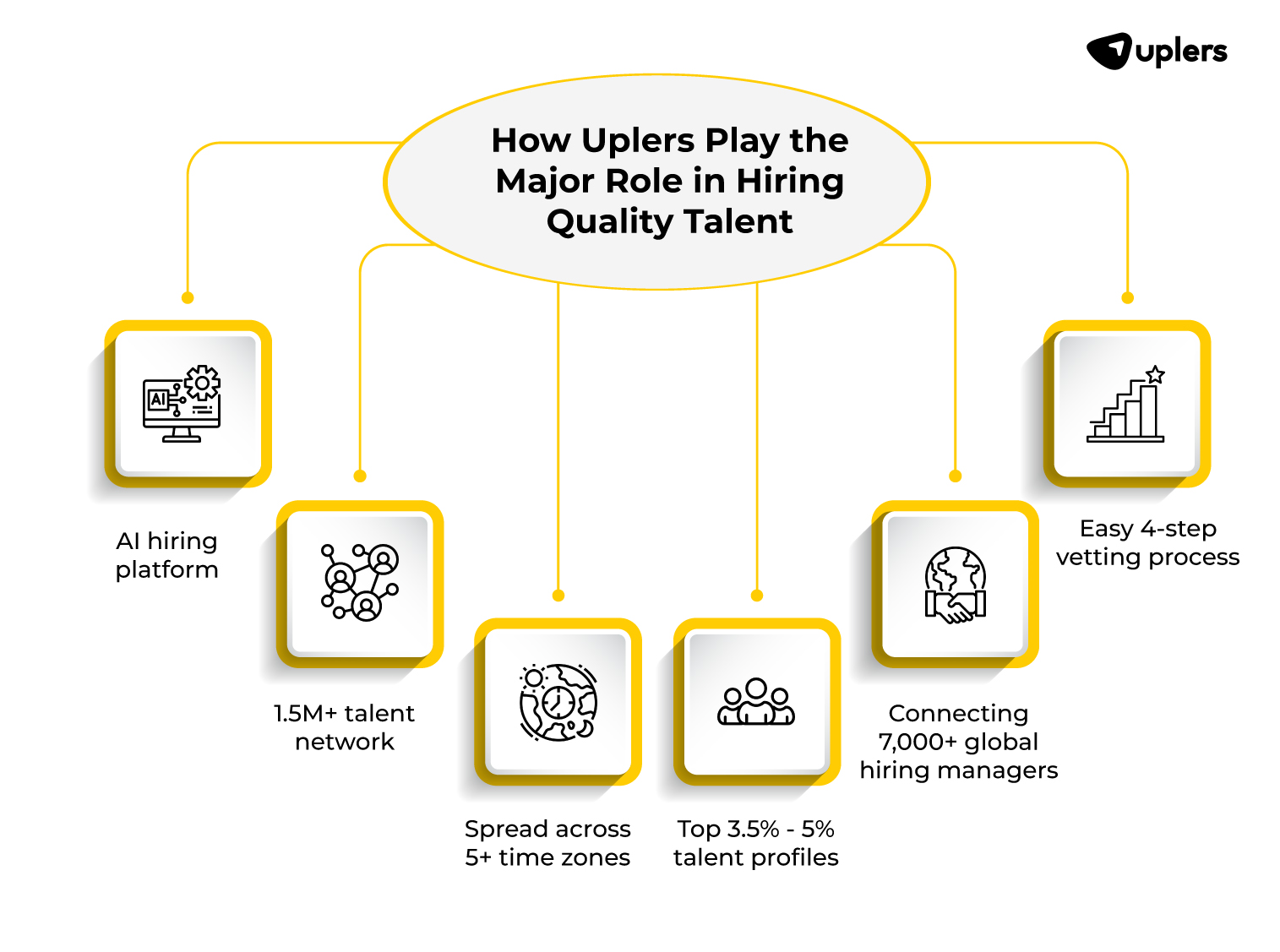Hire Chatbot Developers to Automate Support and Boost Conversions
- Shachi Dixit
- July 27, 2025
- 3 Minute Read

As we advance deeper into the age of real-time digital interactions, one trend that redefines how businesses scale customer experience is conversational automation. In 2025, it’s not simply about replacing human support, it’s about enhancing the way users interact with your products, services, and brands.
According to recent reports, the global chatbot market is valued at $15.57 billion in 2025 with an expected growth of $46.64 billion by 2029. This massive jump in adoption signals one major trend: chatbots are not just seen from the perspective of being support tools – they are strategic business levers.
As a result, more and more product companies are making a conscious decision to hire chatbot developers that can build intelligent, conversion-ready solutions that plug directly into marketing, sales, and support workflows.
From FAQ Bots to Revenue Drivers: The Evolving Role of Chatbots
Chatbots are not simply limited to basic FAQs, they are now regarded as conversational interfaces that act as:
- Tools for lead qualifying that increase inbound conversions.
- Companions for customer onboarding (lowering drop-off in self-serve flows).
- Support staff after the sale (lowering ticket volume and churn).
- Recommendation engines for SaaS personalization and e-commerce.
Well-trained and well-built bots increase conversion rates and reduce support costs significantly, based on the implementation. For this kind of impact you need to hire chatbot developers who go beyond the drag-and-drop builders. They must be fluent in AI, system integration skills, and UX awareness.
Key Skills to Look for When Hiring Chatbot Developers
Hiring the right developer in your team can make a substantial difference between a clunky user interaction and a revenue-generating experience. Here’s what you must look for:
-
Conversational UX
An understanding of tone, flow, and error handling in human-like conversations.
-
NLP and Intent Recognition
Familiarity with Dialogflow, Rasa, or custom NLP models for nuanced interactions.
-
Multilingual and Accessibility support
Building inclusive and globally adaptable bots.
-
Integration expertise
Ability to synchronize bots with CRMs, ERPs, or backend services.
-
Analytics and optimization
Setting up performance tracking to fine-tune conversion flows.
Some essential things to consider when you hire chatbot developers is their ability to blend AI logic with business logic, platform adaptability, and experience working in iterative and cross-functional teams.
As India continues to be a hub for emerging AI talent, several product-first SaaS teams now hire chatbot developers from India through hiring platforms like Uplers. This offers the top 3.5% profiles that are AI-vetted and AI-interviewed from a 3M+ talent network.

Platform Expertise: WhatsApp, Messenger, Web, and Custom AI Solutions
Not all platforms are created to be equal and neither are the bots designed for them. A well-rounded chatbot developer is one who is comfortable building across:
- Web-based chat widgets (via custom code or tools like Botpress).
- Messaging platforms like WhatsApp Business, Facebook Messenger, and Telegram.
- Slack or MS Teams integrations for B2B workflows.
- Voice and IVR automation (Alexa, Google Assistant).
- Custom LLM integrations for GPT-powered response
Each use case here demands platform-specific UX thinking and API familiarity. For instance, a WhatsApp bot will need lean messaging and regulatory compliance, but a web bot may require more robust integrations and fallback flows.
You must aim to hire chatbot developers who not only code but also can prototype, test, and deploy across these ecosystems with measurable business results. The demand for these professionals also overlaps with those looking to hire AI engineers to shape the future of SaaS. This is especially true where generative AI and LLM-based conversational flows are the new standard for support and upselling.
Integrating Chatbots with CRM, Ecommerce, and Marketing Tools
To make bots that add value, integration is of the essence. Today’s bots don’t live in silos, they synchronize with your ecosystem to:
- Trigger ecommerce order flows or cart reminders.
- Run segmentation logic to personalize responses.
- Retrieve dynamic pricing, stock availability, or custom offers.
- Feed marketing automation tools like HubSpot, Marketo, or customer.io.
- Update CRM contacts and pipelines in real time.
For example, in ecommerce integrating bots with Shopify or Magento offers seamless order lookups, returns, or product recommendations. In SaaS, bots can trigger in-app messages or even escalate tickets to live agents when required. That’s why several CTOs are looking to hire software engineers with chatbot specialization. This ensures that the developers they bring onboard can work end-to-end – from NLP intent design to system-level data integrations.
Final Thoughts: Hiring for Impact—Not Just Automation
In a world with customer interaction being the growth channel, chatbots have become more than just convenience tools. They are the strategic enablers of scalability.
Unlike any technology, the success of chatbot implementation hinges on the talent behind it. Teams that hire chatbot developers with the right blend of AI, UX, and integration skills, are witnessing real ROI in customer acquisition, retention, and cost-efficiency. Whether it’s scaling a B2C commerce brand or launching a SaaS product, your next hire in conversational AI would be the key differentiator between generic automation and a memorable customer journey.







